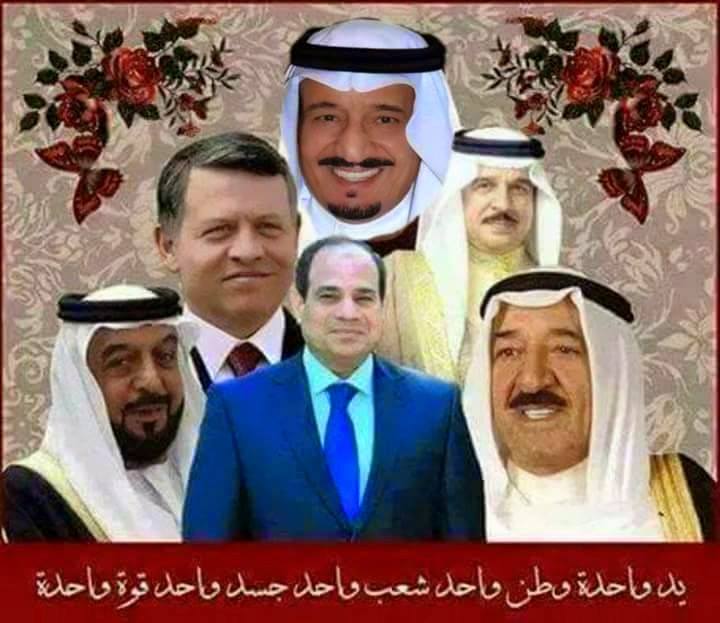Islamic climate change declaration could be a game-changer
Vicente Lopez-Ibor Mayor/Al Arabiya/August 28/15
Last week’s “Islamic Declaration on Climate Change” issued by Muslim scholars from 20 countries fits into a longer trend of faith and civic movements working to galvanize positive political and social change.
Those Muslim scholars now join the Papacy, the Church of England, the Unitarians, World Council of Churches, and universities like Oxford and Stanford in advocating a moral duty toward fighting climate change.
And just as the Church played a key role in the 19th century Abolitionist movement’s success in shifting public opinion on slavery, today the work of religious and civic leaders is equally important in creating the cultural context necessary for climate action to succeed. After all, mere legislative efforts to tackle climate change faces the very real risk of longer-term political and electoral backlash unless it goes hand-in-hand with sufficient public support and the right cultural framework. Without this there can be no permanent solution to the climate change dilemma.
Attitude battle
A case in point is again the example of abolition. The struggle to emancipate slaves required the input of clergy, politicians, intellectuals and a gruelling civil war. But why, after all that, did it still a century for basic legal rights to be granted to Black Americans? One reason is that the war and the changes to the Constitution did not necessarily change public opinion in the South. While the battle to abolish slavery had been decisively won, the battle to change attitudes had not. Likewise, attitudes on the pressing social and moral challenges of our day must be shifted for permanent wholistic change to be seen.
There is an economic as well as moral argument for the Islamic world to reduce fossil fuel consumption It is also why the work of religious and civic leaders in promoting an environmental dimension to prevailing notions of justice and moral responsibility is so important, particularly in the Islamic world which boasts some of the world’s biggest oil and gas producing nations.
But there is an economic, as well as moral argument for the Islamic world to reduce fossil fuel consumption. Much of the Islamic world is optimally placed to harness the benefits of solar power, which is becoming increasingly cheaper to invest in. And high domestic consumption of fossil fuels in many Muslim countries means there is a strong case for such a transition, at least domestically. In Saudi Arabia, oil accounts for over 65 percent of all domestic electricity production, in Kuwait it is 71 percent, in Lebanon it is 94 percent and in Yemen it’s an astonishing 100 percent.
These represent energy policies that are inefficient and in the long run – unsustainable. It is also why companies like Saudi Aramco announced last year that it would be making solar energy investments across Saudi Arabia in an attempt to diversify the country’s energy supplies. Elsewhere in the Islamic world, problems with energy infrastructure in countries like Pakistan that routinely suffer blackouts is yet another reason for why clean off-grid energies like solar offer a practical, more effective alternative. In the words of Tesla CEO Elon Musk, technological advances in solar storage capacity could mean third-world off-grid communities “leapfrogging” the need for a centralized energy grid infrastructure, similar to how mobile phones have helped third world communities leapfrog the need for a landline telecoms infrastructure.
Stronger society
Finally, the recent climate change declaration by Muslim scholars reflects an initial step towards the development of a necessary ingredient in the climate change fight – a stronger civil society. Wael Hmaidan, international Director of Climate Action Network said, “civil society is delighted by this powerful Climate Declaration coming from the Islamic community, which could be a game changer”. And indeed it could be. While there are many causes around which civil society could begin to coalesce in order to foster a collective sense of civic purpose, identity and action, few issues have the potential to unite people and galvanise action as well as tackling climate change.
Fighting climate change, moreover, has the potential to not only unite members of academia, clergy, scientists and social activists, but could also strengthen civic society in the process. Given some of the challenges of extremism unfortunately present in certain parts of the Muslim world, it’s worth noting that the narrative of environmentally conscious climate action premised on collective action by all for the benefit of all, is antithetical to extremist narratives of fatalism, divisiveness and conflict. When civil society is actualised through common action for the sake of common goals, it will eventually work as a counter-weight to more regressive social and political norms.
The Islamic Declaration on Climate Change is an initial step, but an important one. It stands as an important reminder that faith values can still be employed to help address some of the pressing global challenges of our day. And in the global efforts to avert the prospect of irreversible climate change, the contribution of religious figures, social activists and community leaders is not just helpful, it’s necessary.





















